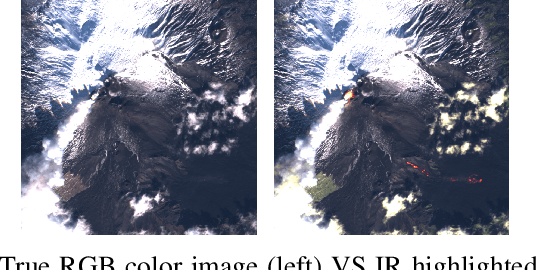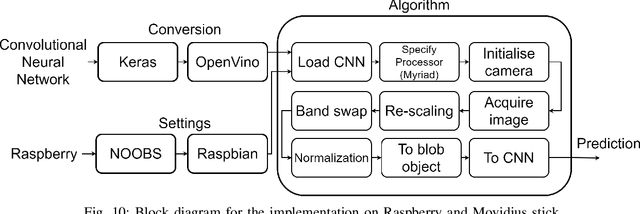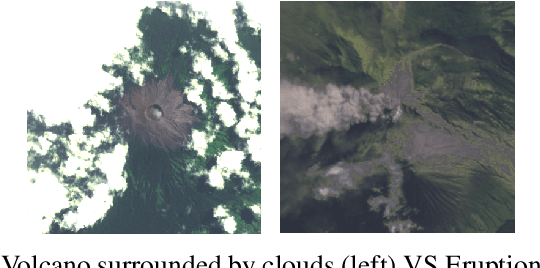On Board Volcanic Eruption Detection through CNNs and Satellite Multispectral Imagery
Paper and Code
Jul 28, 2021



In recent years, the growth of Machine Learning (ML) algorithms has raised the number of studies including their applicability in a variety of different scenarios. Among all, one of the hardest ones is the aerospace, due to its peculiar physical requirements. In this context, a feasibility study and a first prototype for an Artificial Intelligence (AI) model to be deployed on board satellites are presented in this work. As a case study, the detection of volcanic eruptions has been investigated as a method to swiftly produce alerts and allow immediate interventions. Two Convolutional Neural Networks (CNNs) have been proposed and designed, showing how to efficiently implement them for identifying the eruptions and at the same time adapting their complexity in order to fit on board requirements.
 Add to Chrome
Add to Chrome Add to Firefox
Add to Firefox Add to Edge
Add to Edge